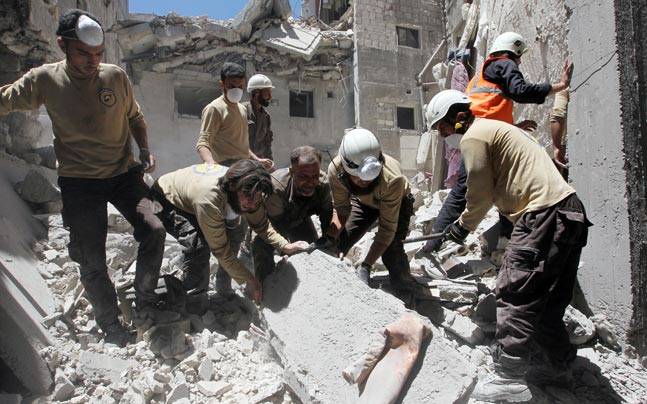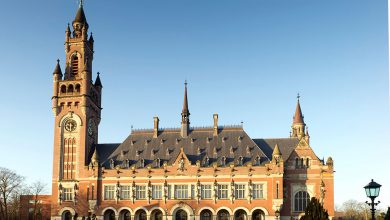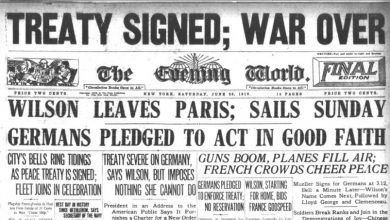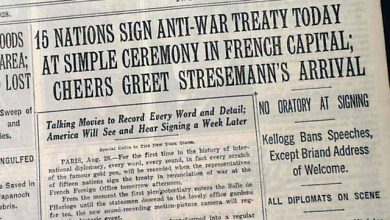Uncategorized
Dispute Resolution: Give War a Chance?
In 1999, Luttwak wrote an article titled "Give War a Chance" for Foreign Affairs, an American magazine. The main assumption of his article was that peacekeeping or humanitarian operations do not usually work as intended. Instead, these operations lengthen the conflict make it more difficult for peace to be achieved.

Edward Nicolae Luttwak is an American political scientist, historian and military strategist who is well-known for his writings on international relations and military strategy. Luttwak has provided consulting services to the U.S. government, the U.S. military, other governments and international groups.
A Forced Peace Isn’t a Good Peace
Luttwak contends the only viable peace is achieved after a war has had a natural end and those directly involved establish lasting peace. He states a forced peace imposed by others doesn’t lead to a real peace. Rather than rebuilding societies and economies devastated by war, preparing for the next war becomes the priority.
He believes all of the death and suffering of war will eventually result in a stable situation if the parties fight until one side defeats the other and real postwar reconstruction begins. In World War II, the war continued until the Allies won and assisted the defeated nations with reconstruction.
United Nations Peacekeeping Efforts
The United Nations has typically intervened in conflicts early, rather than letting them run their natural course until peace is declared by those involved. Rather than to allow this to happen, the U.N. imposes cease-fires and armistices. NATO (the North Atlantic Treaty Organization) acted similarly in Kosovo.
Unfortunately, fighting forces use cease-fires as an opportunity to rearm and rest. This allows the fighting to continue longer than it would otherwise, ultimately resulting in more deaths and devastation.
Luttwak uses the Arab-Israeli war of 1948-49 to illustrates his theory. He believes that the war would have ended in a few weeks if the U.N. had not imposed two cease-fires on the combatants. He states that the more recent fighting in the Balkans between the Serbs and Croats was also prolonged by imposed cease-fires. During cease-fires, both sides grew their forces by recruiting, equipping and training additional soldiers. As a result, the fighting lasted longer than if the original armies fought until one defeated the other. A shorter war would have meant fewer deaths and less destruction.
Luttwak states that imposing an armistice without a peace negotiated by those fighting the war can result in an artificially frozen conflict. If the weaker side is protected by outsiders indefinitely, they will be unwilling to make the concessions resulting in a true peace. It can be better to let minor conflicts continue to conclusion rather than for the great powers to intercede and force an ending that doesn’t result in a true peace.
The Paradox of Humanitarian Relief
Providing humanitarian relief to war victims has become one of the major priorities of the United Nations Relief and Works Agency (UNRWA). The agency’s mission is to provide food, shelter, health services and education to those displaced by war. The UNRWA was established immediately after the Arab-Israeli war of 1948-49 to help Arab refugees from the former Israeli territory of Palestine.
Refugee camps were purposefully kept spartan to encourage those living there to emigrate or resettle as quickly as possible. In Europe, this was generally successful. However, refugee camps in the West Bank, Gaza Strip, Jordan, Syria and Lebanon became permanent homes for refugees. Most of the Arab villagers were actually living better than they had been previously, enjoying a better diet, medical care and education. Humanitarian efforts had resulted in permanent refugees, with children born to a life in a refugee camp and intensifying instability in the region.
Luttwak’s Conclusion
Luttwak states that too many wars have become never-ending conflicts because outside intervention prevents the war from ending. He believes that the natural desire to end human suffering during a conflict can actually result in more suffering. Luttwak concludes that the only useful function of a war is to bring peace.



